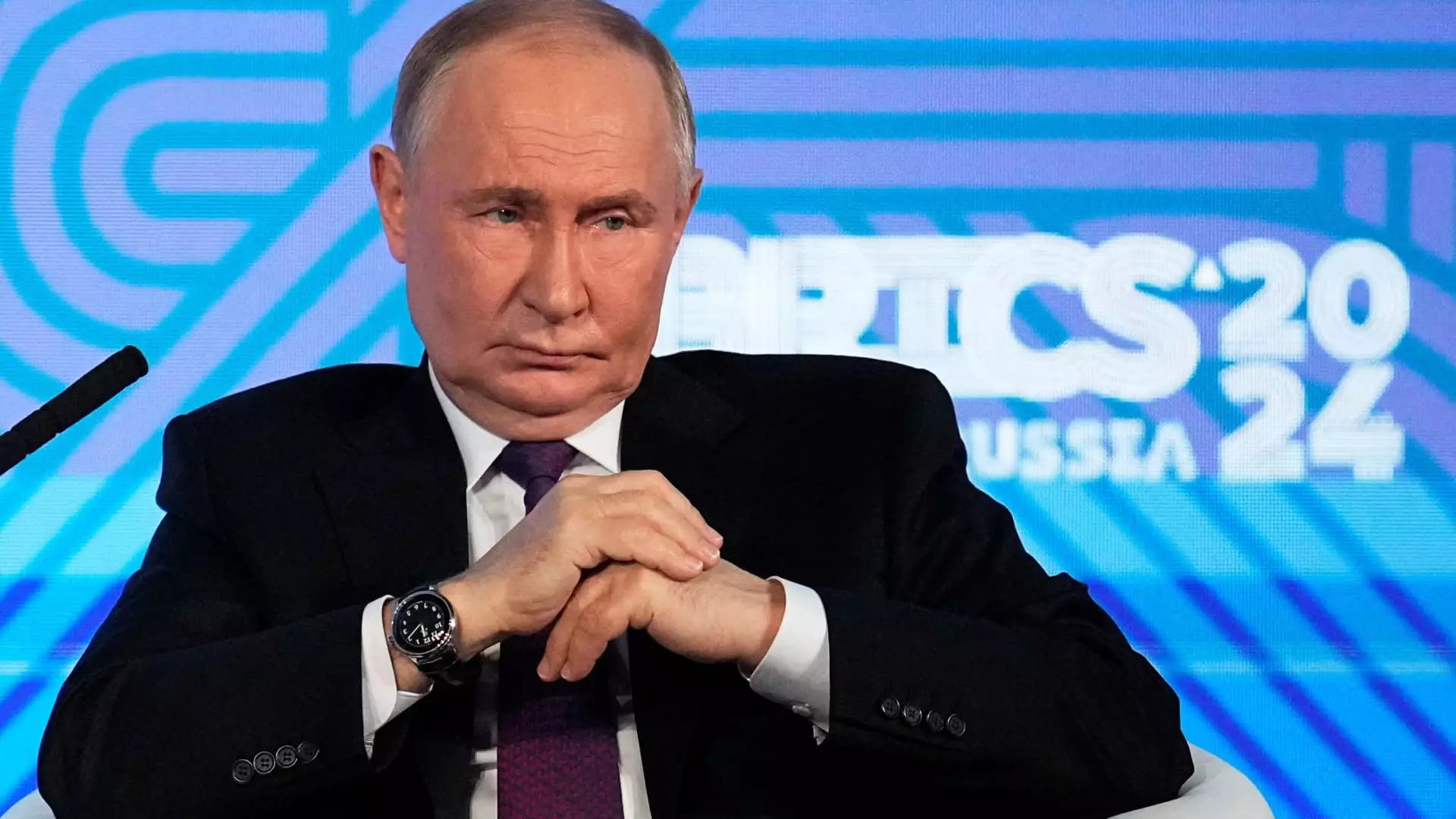As the tides of global economy continue to shift, the BRICS nations—Brazil, Russia, India, China, and South Africa—are rapidly positioning themselves as leading players in this transformation. Recent remarks from Russian President Vladimir Putin underline the importance of this coalition as an emerging powerhouse that contrasts sharply with traditional Western dominance. This article delves into the implications of the BRICS group for global economic dynamics, its strategic initiatives, and the potential challenges it faces in the coming years.
BRICS has recently expanded its membership to include Egypt, Ethiopia, Iran, and the United Arab Emirates (UAE). This enlargement reflects the group’s ambition to bolster its collective weight in global economic affairs. Putin’s assertion that BRICS nations will drive substantial growth in the global GDP highlights the potential for these countries to serve as a counterbalance to Western economic hegemony. The upcoming BRICS summit in Kazan, scheduled for October 22-24, symbolizes an opportunity for these nations to deepen cooperation and showcase their resilience amid Western attempts to marginalize them, particularly in light of geopolitical tensions such as the ongoing conflict in Ukraine.
The Kremlin’s narrative posits that a united BRICS coalition will not only challenge the predominance of Western nations but also forge a new economic order that is less susceptible to outside influences. By asserting “economic sovereignty,” the BRICS nations seek to control their economic destinies, reducing reliance on Western financial systems that often dictate terms to developing countries.
An essential aspect of BRICS’ strategy is its emphasis on economic sovereignty. Putin outlines plans for joint initiatives that include establishing a cross-border payment system and a resilient financial messaging system, akin to SWIFT, designed to operate independent of Western sanctions. These initiatives signal a clear desire among BRICS members to create alternative financial frameworks that empower their own economies and diminish the influence of the U.S. dollar.
Furthermore, Putin highlights the significance of national digital currencies in facilitating investment projects within the BRICS territories. Although discussions surrounding a unified BRICS currency have been deemed “premature,” this move towards financial independence reflects a robust commitment among member states to redefine their economic interactions. In this evolving landscape, the New Development Bank (NDB)—the only multilateral development institution within BRICS—is poised to play a crucial role as an alternate avenue for financing development initiatives. The bank’s focus on infrastructure and technology investments aligns well with BRICS’ aspirations to elevate the Global South’s economic prospects.
As the BRICS bloc seeks to propel its economic agenda, Putin emphasizes the need for increased investment in sectors such as e-commerce and artificial intelligence. These areas are pivotal for driving innovation and productivity, which are essential for sustained economic growth within these countries. The pursuit of advanced technology and development initiatives is not merely about competing with the West; it is also a means to fundamentally reshape the economic landscape, empowering millions across the BRICS nations.
Additionally, Putin alludes to significant transport projects, such as the Arctic Sea Route and the North-to-South corridor, which aim to enhance connectivity between the Eurasian and African continents. Such initiatives are crucial in facilitating trade and logistics, further integrating the economies of BRICS nations and fostering a more resilient global trade network.
Despite the promising outlook, the road ahead is fraught with challenges. The internal dynamics within BRICS can pose difficulties, as member states have different political ideologies, economic priorities, and levels of development. Furthermore, the group must contend with external pressures from Western powers reluctant to relinquish their influence in global affairs.
As BRICS embarks on its ambitious journey towards economic prominence, it must navigate these complexities while remaining committed to its core values of cooperation, autonomy, and development. The forthcoming summit in Kazan represents not only a platform for discourse but also an opportunity to lay the groundwork for a more equitable global economic order where the voice and interests of emerging economies are acknowledged and prioritized.
BRICS stands at a pivotal moment in its evolution as a formidable economic bloc. With strategic initiatives aimed at promoting financial independence and technological advancement, the collective future of these nations may well redefine the rules of international economic engagement in the years to come.

Leave a Reply